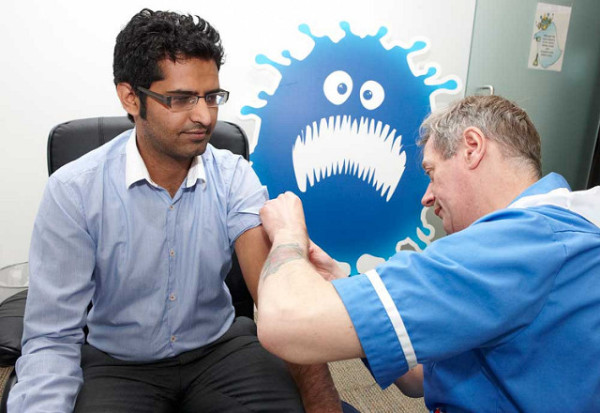Most of us would like to believe that we are not dumb. More than half of people believe that they are “above average” in intelligence, displaying a phenomenon coined “Illusory Superiority“. Yet, in 2011, more than half of Americans had trouble naming one living scientist. General scientific ignorance reigned supreme in following years, with only 58% of respondents to a 2013 poll correctly identifying carbon dioxide as the greenhouse gas most associated with global warming, a decline from 65% in 2009. In 2014, a startling finding came to light: one in four Americans did not know that the Earth revolves around the sun. Supposedly these are the same people who are shaping public policy decisions with their civic participation and child-rearing. Does the public’s poor poll performance indicate doom and gloom?
Image Source: Matt Mawson.
When such statistics pop up, the general recipient of this information would like to believe that this does not indicate massive idiocy in the American public, but that most people regard science as irrelevant. Many seem to exclude science from their finite pool of worry in the face of other repeated worry offenders, such as the economy, annoying colleagues, or flaky babysitters. They display scientific illiteracy, deficient in “the knowledge and understanding of scientific concepts and processes required for personal decision making.”
Unequipped with evaluating and contextualizing public health “threats” within its apt field of scientific discourse, people are likely to see polarized opinions on scientific topics as sufficient science. Which is odd, given that science is a field grounded in objectivity that makes conclusions based on evidence. Dismissal of evidence becomes dangerous particularly in public health discourse.
For example, in a recently published research study that compared the opinions of the “generic” American public with the population of scientists and researchers on different topics, only 37% of Americans stated that they thought GMOs are safe to eat, drastically different from the 88% of scientists. Scientists demonstrated a similar, nearly nine-tenths consensus on anthropogenic climate change (87%), as opposed to 50% of the American public (this resembles an inaccurately represented discussion over climate change as a 1:1 “debate”). As seen with the “rationalizations” many American parents make to keep their kids vaccine-free and endangering others in the process, these gaps can often have far-ranging health consequences. Observe how many have misinterpreted herd immunity to mean that their kid can be exempted.
Image Source: Joe Raedle.
Yet, adults seem to adore science and think the STEM fields should be more emphasized in primary and secondary education. It may fall on public health organizations to close the gap between what people think they should know and what they actually know.
Improving public health involves reducing disparities in populations through access to health resources, and one of these resources is information. Cultural norms as well as schools should encourage scientifically literate conversations, as measles outbreaks have shown that misinformation can silence many salient scientific studies. Fittingly, primary education in the United States ranks a whopping 58th in some global comparison indices, below nations such as Rwanda and Zimbabwe. The fault lies beyond misinformed parents on an institutional scale: a 2015 survey shows that 51% of schoolchildren qualify for free or reduced price lunches, a proxy for poverty.
Public health figures must harness resources to buoy a culture of scientific literacy so that misinformation can land on discerning ears, and people can continue their lives unperturbed.
Featured Image: Nurse giving flu jab by NHS employers.










